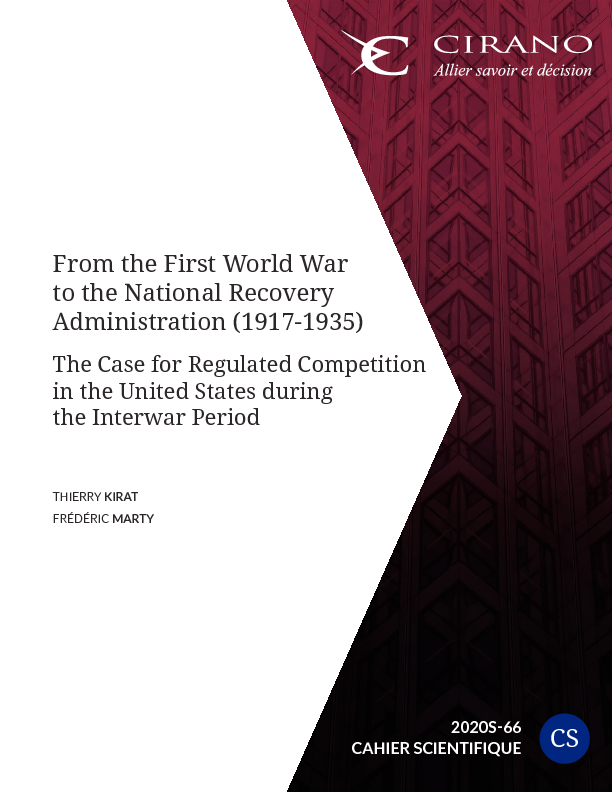From the First World War to the National Recovery Administration (1917-1935) - The Case for Regulated Competition in the United States during the Interwar Period
The experience of the war economy during the First World War in the United States reinforced the influence of arguments in favour of managed competition. By extending the principles of scientific management to the economy as a whole, this approach aimed to coordinate firms through the exchange of information, which was seen as a necessity both in terms of economic efficiency and response to cyclical fluctuations. Such a stance greatly reduced the application of competition rules. Nevertheless, the proposals that emerged during the 1929 crisis – leading to the reproduction of the war-economy experience in peacetime at the risk of steering the US economy towards the formation of cartels under the supervision of the federal government – were rejected by President Herbert Hoover, despite his defence of a model for regulated competition in the 1920s. The paradox was President Franklin D. Roosevelt’s resumption of these projects within the framework of the First New Deal. This paper deals with the arguments that were put forward to evade competition rules and explains why the Democratic administration ultimately decided to return to a resolute enforcement of the Sherman Act.




